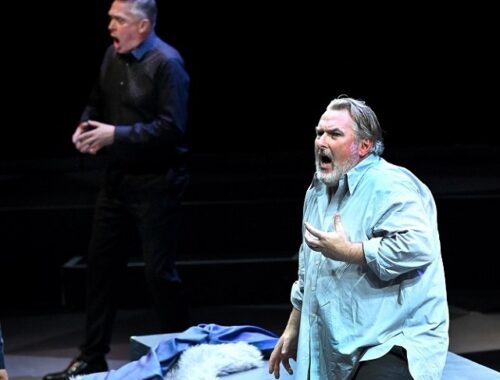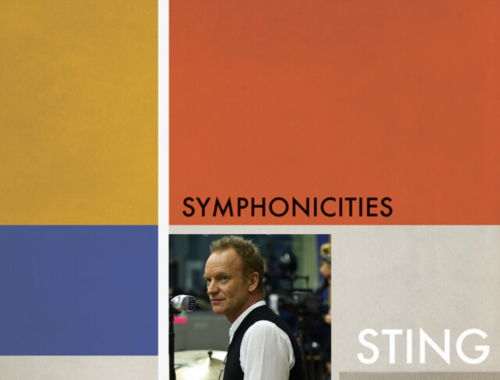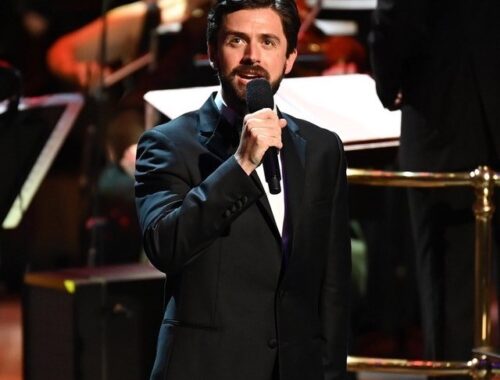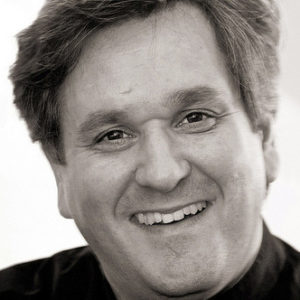Amadeus, Chichester Festival Theatre
 Peter Shaffer has always been a big ideas man and the curse laid upon Antonio Salieri that he and he alone should recognise the genius of Wolfgang Amadeus Mozart while all around him – not least himself – bask in mediocrity is one of his biggest and most challenging. Amadeus isn’t a play about rivalry, deceit, murder (all scantly addressed through historical heresay), it’s about the eternal mystery of musicality – something which cannot be taught or cultivated but which defines composers and performers alike and so often – more often than not – goes under the guise of that most elusive and misleading of words: inspiration. Salieri recognises Mozart’s uniqueness, how he effortlessly transforms the ordinary into the extraordinary, arbitrarily bends old rules to forge new ones, and in the simplest collusion of notes can create a world of expression that the less gifted can strive a lifetime never to achieve. To Salieri this painful truth is God’s mockery of mediocrity. Embittered, Salieri rails against, as he sees it, the Almighty’s vindictive curse – and if that isn’t the stuff of high drama I don’t know what is.
Peter Shaffer has always been a big ideas man and the curse laid upon Antonio Salieri that he and he alone should recognise the genius of Wolfgang Amadeus Mozart while all around him – not least himself – bask in mediocrity is one of his biggest and most challenging. Amadeus isn’t a play about rivalry, deceit, murder (all scantly addressed through historical heresay), it’s about the eternal mystery of musicality – something which cannot be taught or cultivated but which defines composers and performers alike and so often – more often than not – goes under the guise of that most elusive and misleading of words: inspiration. Salieri recognises Mozart’s uniqueness, how he effortlessly transforms the ordinary into the extraordinary, arbitrarily bends old rules to forge new ones, and in the simplest collusion of notes can create a world of expression that the less gifted can strive a lifetime never to achieve. To Salieri this painful truth is God’s mockery of mediocrity. Embittered, Salieri rails against, as he sees it, the Almighty’s vindictive curse – and if that isn’t the stuff of high drama I don’t know what is.
That memorable moment where Salieri hears Mozart’s music for the first time – the Adagio from Mozart’s Serenade in B-flat major for 13 wind instruments – and chronicles the progress of the unfolding music through his astonishment is the kind of thing that Shaffer does brilliantly in Amadeus. Again it’s all about recognition, about hearing the music through the ears and sensibilities of another musician – an accomplished one at that. Just not Mozart. And that’s where the magic descends in the play. You could argue that there is not enough music in it – the Milos Forman film deployed far more music and deployed it magnificently – but then again you could argue that the play is so precisely plotted in terms of “special effects” like music that any director approaching a revival of it is somewhat bound by its specifics.
Jonathan Church and his designer Simon Higlett could hardly be more faithful to its ethos though the use of projections opens out the imagery like stained glass and gives the whole show a magical, not to say hieratical, feel with sliding panels at the rear of the stage suggesting doors opening upon doors as aspects of Viennese courtly life are stripped away.
But the meat of the play is contained in the operatic figure of Salieri and whilst the idea of Rupert Everett is a good one and his suave throw-away style works the audience like a charm when Salieri is at his most cynical it takes a really commanding stage persona to carry this role – the mighty figure of Paul Schofield can never be erased – and Everett simply does not have the vocal reach or variety to make those long orations soar. There were a number of fluffs, too, in the matinee performance I attended and not once did the torment of this man feel real as opposed to theatrically cosmetic.
Joshua McGuire, on the other hand, found genuine vulnerability and pathos beneath the roistering, childish, foul-mouthed persona of Wolfgang Amadeus and his playful scenes with Jessie Buckley’s earthy Constanze conveyed a touching kinship and affection as his brightly burning flame headed towards extinction.
The skill of Peter Shaffer has always been to communicate high-flown ideas to the widest possible audience and whilst there were moments in act one where the play felt rather slight and contrived forty years on there can be no doubting his ability to carry an audience on the crest of some big ideas and make us all think more deeply about the very nature of genius – so easy to recognise, so hard to define.
You May Also Like

GRAMOPHONE: From Where I Sit – November 2021
20/12/2021
A Conversation With STING: Symphonicities
02/02/2012

